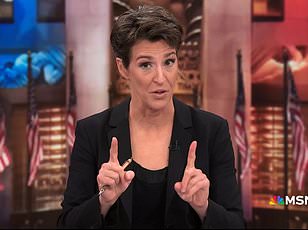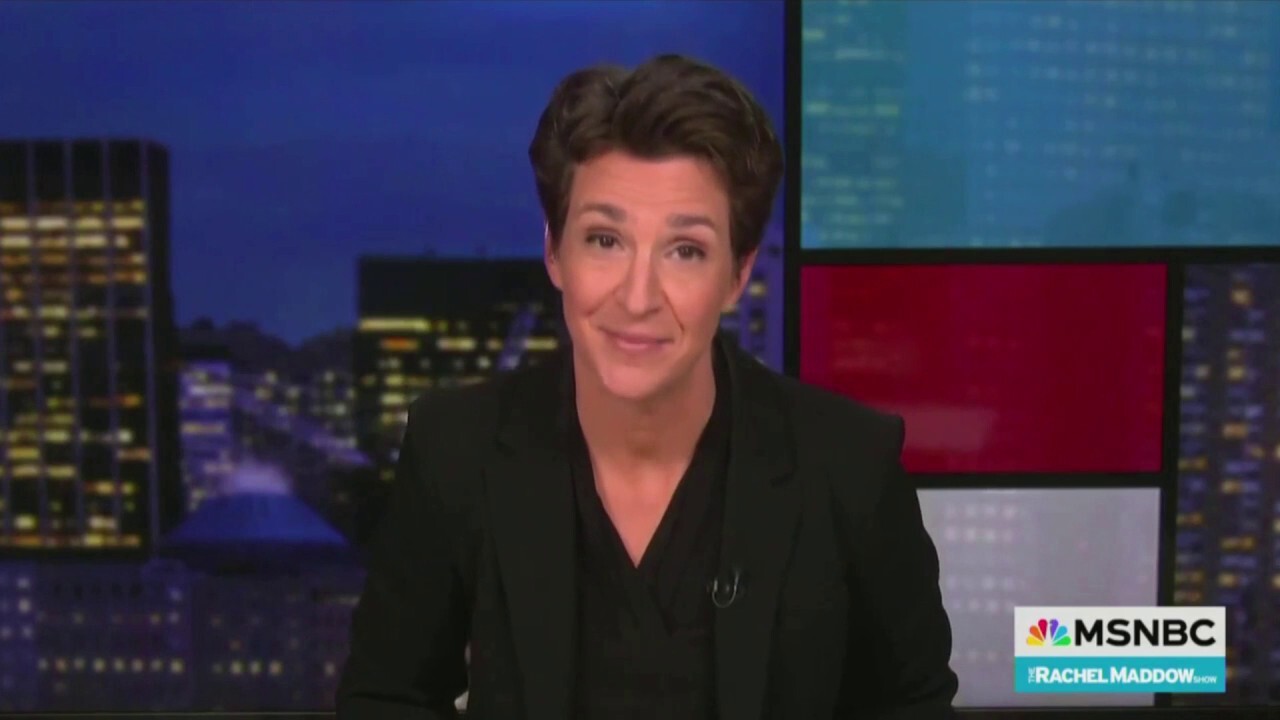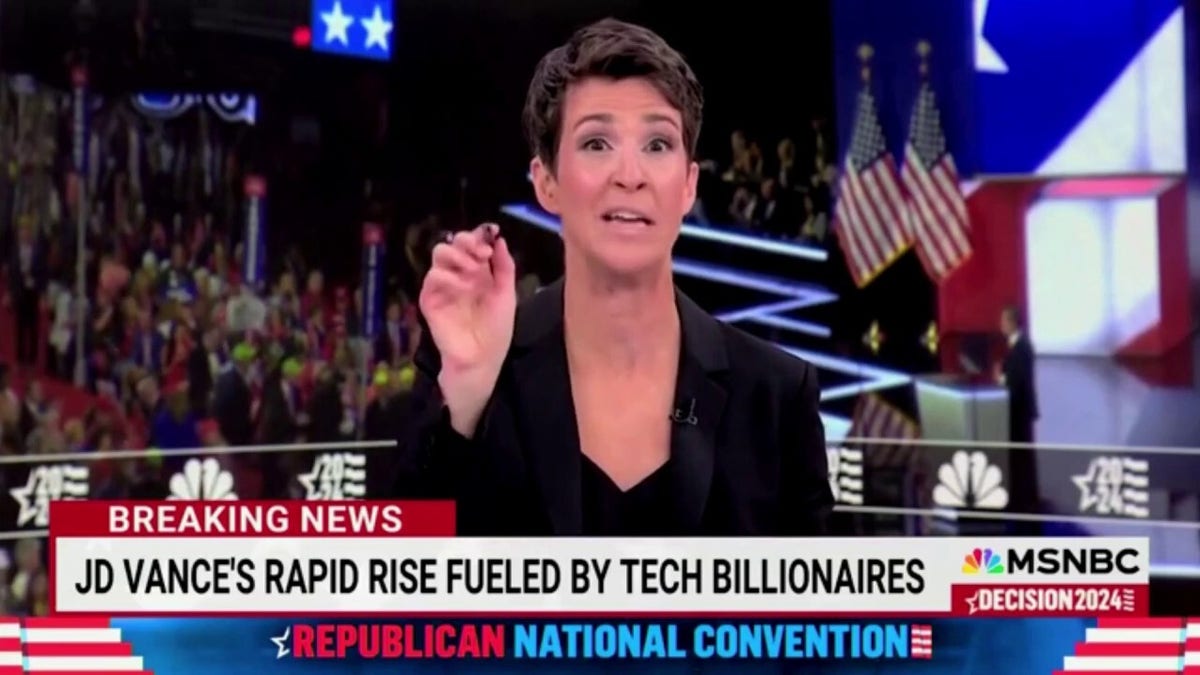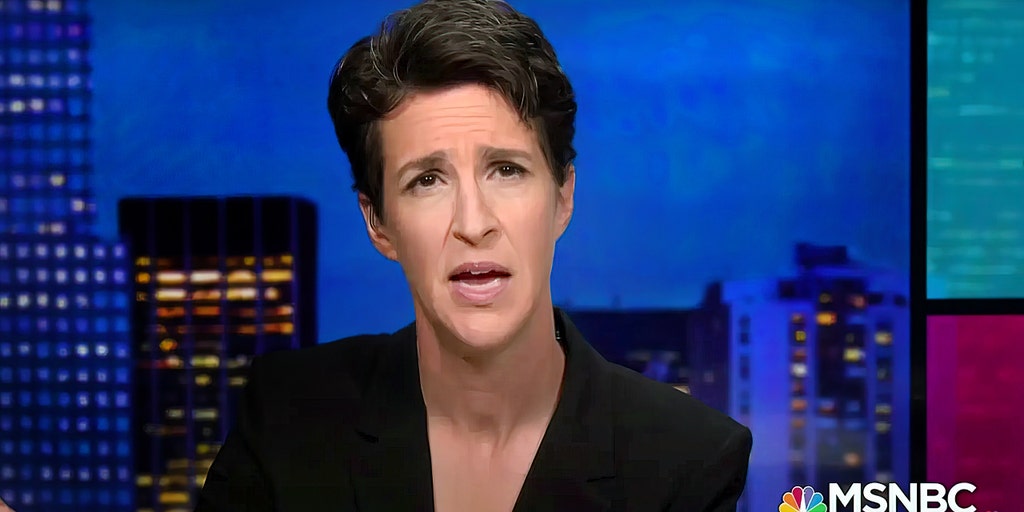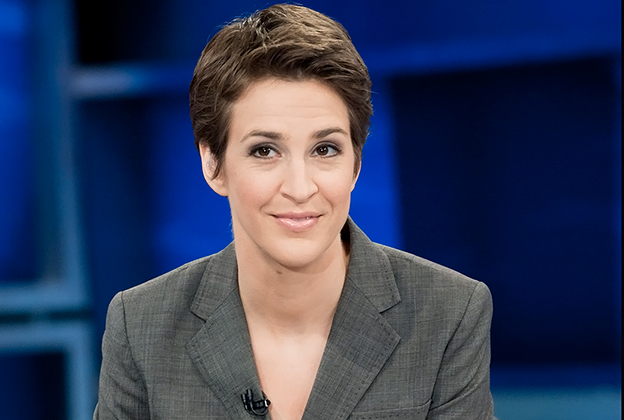The Reason Why MSNBC Bosses Can’t Fire Rachel Maddow Even Though Her Salary Is Extremely High!
In the world of cable news, few names resonate as powerfully as Rachel Maddow. With an impressive salary that reportedly hovers around $25 million per year, her position at MSNBC appears secure. However, recent circumstances have raised questions about the viability of her tenure, sparking discussions about why her employers have yet to consider firing her despite controversies and dwindling viewership numbers. This article delves into the complexities surrounding Maddow’s role within the network and the reasons why her departure is unlikely, despite the obstacles she faces.
A Storm of Controversy
The media landscape is no stranger to controversy, and Rachel Maddow has certainly found herself at the center of it lately. Not long ago, she made headlines after commenting on MSNBC’s decision to part ways with Joy Reid, a well-respected host known for her insights on race and culture. Maddow suggested that Reid’s departure highlighted deeper issues within the network regarding racial representation, implying that the decision was racially motivated. This bold stance ignited discussions not only within the network but also across the media spectrum, confronting MSNBC’s leadership on its commitment to diversity.
Such commentary has placed Maddow in a precarious position. Publicly critiquing her employer raises questions about her judgment and loyalty, especially in light of her high-income status. Critics argue that making such accusatory statements could lead to retraction or even termination. However, they overlook a crucial factor: Maddow’s immense value to MSNBC as one of its most recognizable and highest-rated hosts creates a protective layer against immediate repercussions.
The Economics of Television
From an economic standpoint, firing Rachel Maddow is far more complicated than dismissing any ordinary employee. Maddow’s substantial salary is matched by her ability to draw in viewers, which directly correlates to advertising revenue for the network. Despite a reported 53% decline in primetime ratings at MSNBC, Maddow remains a significant draw. Her show has consistently topped charts in cable news, proving that her presence still commands a loyal audience.
In the cutthroat realm of television ratings, losing a marquee talent like Maddow could translate to financial loss. Viewers often tune in specifically for her unique blend of analysis, commentary, and opinion-based reporting. Dismissing a figure of her stature could lead to a ripple effect, where the network not only loses viewers but also places itself at a competitive disadvantage against rivals such as CNN or Fox News. In this context, her salary transforms from an excessive price tag to an investment opportunity for the network.
Network Dynamics and Internal Politics
The dynamics within MSNBC extend beyond mere financial considerations. Maddow’s critique of the network’s racial representation policies may suggest turmoil within its corporate strategy, prompting management to evaluate how they can appease both talent and viewers alike. Her comments have already initiated discussions about diversifying programming. For instance, plans for future programming may include a stronger emphasis on BIPOC perspectives, especially in light of her remarks regarding Reid.
Moreover, Maddow has cultivated a powerful platform over the years, allowing her to navigate controversies with a degree of influence that many employees lack. Her stature contributes to a protective buffer, suggesting that her continuation at MSNBC may also be tied to internal pressures pressing the management to promote diversity more effectively. Should Maddow be terminated, it could send shockwaves throughout the industry, establishing a precedent for silencing dissent within powerful media outlets.
In conclusion, while the potential for firing Rachel Maddow exists, her high salary, viewership numbers, and the internal dynamics of MSNBC create a complex case for her continued employment. Her ability to challenge the network while still being a leading figure indicates a unique position within the media landscape, raising critical questions about accountability, representation, and the future of cable news. If viewers wish to see how this narrative unfolds, staying tuned to her program may be essential.
